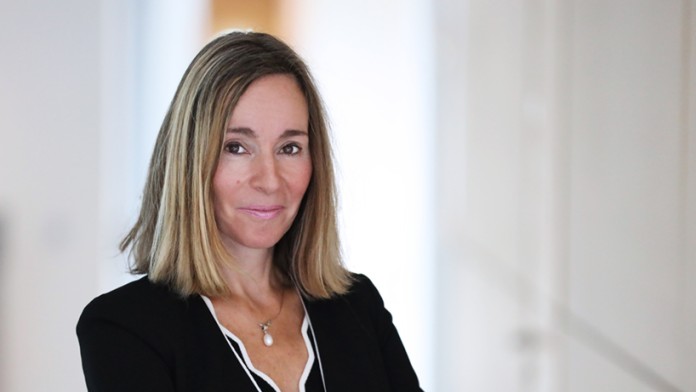Press Release from 2024-06-10 / Group, KfW Development Bank
KfW sees the mobilisation of private capital for Ukraine as a priority:
Ukraine Recovery Conference to further expand financial instruments
- Christiane Laibach: “Reconstruction can only succeed if the international community of states and the private sector join forces”
- KfW is supporting Ukraine on behalf of the German Federal Government and the EU with more than 60 ongoing projects
- Additional commitments planned for restoration of electricity supply and energy infrastructure as well as training
KfW has announced that it will launch further key projects with Ukraine at the forthcoming Ukraine Recovery Conference. It sees the mobilisation of additional private capital for the reconstruction of Ukraine and the use of corresponding financial instruments as priorities. This is because the international community of states has limited funds for investments in Ukraine. The conference will take place in Berlin on Tuesday and Wednesday with the participation of KfW.
KfW is supporting Ukraine on behalf of the German Federal Government and the EU with more than 60 ongoing projects. Since the start of the Russian invasion of Ukraine two years ago, KfW has made new commitments totalling around EUR 1.4 billion. KfW has been a partner of Ukraine since the 1990s, and has access to a large network and lots of expertise in the country.
“Reconstruction will only succeed if the international community of states and the private sector join forces,”
said Christiane Laibach, Member of KfW’s Executive Board.
“In Berlin, international and Ukrainian actors alike will identify possible solutions for securing the Ukrainian economy while the war is still ongoing.”
According to KfW, financial instruments for companies that want to become more active locally are of particular importance. Laibach emphasised that
“the aim is to increase willingness to invest and then bolster investment activities,"
adding:
“This is essential for the reconstruction of the country.”
In addition to the long-term challenges of reconstruction, simply getting through everyday life also remains a challenge for people in Ukraine. Laibach:
"This makes it all the more important to maintain state functions to the greatest extent possible and to ensure that people's living conditions are acceptable. At the same time, we must utilise all reconstruction approaches and possibilities, and keep in mind the prospect of EU accession."
For example, in addition to programmes to create housing or social infrastructure and services for internally displaced people and host communities – including children and young people, who are particularly affected by the war – KfW is supporting a government economic programme through the long-standing partner Business Development Fund (BDF), which provides loans to companies at reduced rates. This means that farms, bakeries, grocery stores and logistics companies, for example, can keep running. Over the past two and a half years, the programme has provided more than 8,200 low-cost loans to companies and start-ups.
In the energy sector, significant reconstruction work is already under way, with an ongoing portfolio of EUR 506 million. Energy infrastructure such as substations and power plants have been and continue to be the target of Russian attacks. Therefore, in addition to restoring the power infrastructure, it is important to implement protective devices to protect critical parts of this infrastructure. Electricity is, for example, a prerequisite for the supply of heat, for school education, for the operation of hospitals and for agricultural activities. Further contracts are also in preparation.
KfW subsidiary DEG has been advising and supporting its clients from the Ukrainian private sector on an ongoing basis since the start of the war, for example through the “develoPPP” and “Impact Connect” programmes. It is involved in entrepreneurial projects, primarily in the agricultural, IT and logistics sectors. The portfolio of own funds currently amounts to around EUR 60 million. DEG also supports German companies in their investment projects. To this end, it also supports initiatives that specifically promote training and financial support for small and micro-agricultural entrepreneurs. In cooperation with its Ukrainian partners, DEG has contributed around EUR 15 million to aid measures since the start of the Russian invasion, in addition to in-depth consulting services.
Further information on KfW's involvement in Ukraine can be found at: www.kfw.de/stories/society/social-cohesion/ukraine/
Pictures on the subject of Ukraine can be found under the keyword Ukraine at: https://bildarchiv.kfw.de/


Share page
To share the content of this page with your network, click on one of the icons below.
Note on data protection: When you share content, your personal data is transferred to the selected network.
Data protection
Alternatively, you can also copy the short link: https://www.kfw.de/s/enkBbm2w.DFtA
Copy link Link copied